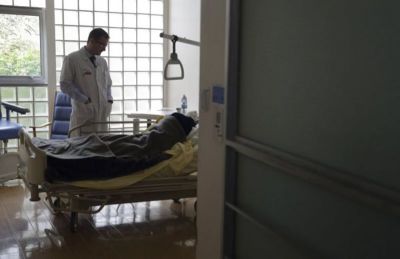Canada's doctor-assisted euthanasia ripe for organ donation abuse

In response to rampant auto theft in Canada, a police official recently encouraged the public to leave their keys by their door to avoid being violently attacked by criminals. In a viral video, he reasoned that “they’re breaking into your home to steal your car; they don’t want anything else.”
We need to ensure this cynical and cavalier approach to law enforcement doesn’t bleed into the healthcare system where gatekeepers of medical assistance in dying (MAiD) may already be too casual with something, like auto theft, that should remain morally alarming.
We know that Canada is harvesting more organs from MAiD than anywhere else in the world. However, there is little discussion about how the health agencies responsible for delivering organ and tissue donations source organs after MAiD.
In Ontario, Canada’s largest province, doctors can begin the conversation with people seeking assisted suicide even before they’ve been approved to die. The Trillium Gift of Life Network, which is responsible for coordinating organ donation and transplant services, advises doctors to approach potential MAiD contenders early:
"Patients who have been confirmed by one physician as meeting the eligibility requirements to receive MAiD should be offered the opportunity to be an organ and tissue donor with sufficient time to incorporate donation into their plan for end-of-life care."
These guidelines are out of sync with Canada’s Justice Department, whose supposed safeguards to protect patients seeking assisted suicide require two doctors to provide an assessment before approving MAiD.
The organ donor conversation is happening too quickly for people considering MAiD.
Some reports show that over 30% of people seeking MAiD change their mind and don’t follow through with the procedure. Does that number increase or decrease for people who know others need their organs and are depending on them to die?
Medical professionals in Canada have sounded the alarm that when it comes to organ donation, “MAiD opens a whole can of worms” and could severely compromise public trust in the integrity of the organ transplant system.
The law governing organ donations is aimed at increasing the size of the organ donor pool. The recent expansions of MAiD to include people with healthy organs who suffer from treatable conditions have widened the potential pool of organ donors and viable organs for transplant.
In provinces like Quebec, where 50 people die every year while awaiting transplants, lawmakers are considering a shift in how consent for organ donation works, moving toward presumed consent.
You can’t transplant a cancer-filled liver into someone seeking a new one, but you can transplant the healthy liver of someone whose heart is filled with suffering or despair. The more organs are in demand by patients who want the Canadian medical system to keep them alive and the faster the MAiD process moves patients from life to death, the more potential there is for abuse.
Let’s hope that MAiD practitioners aren’t as cavalier about Canadians’ lives as the police are about Canadians’ cars.
Andrew Kooman is a Canadian writer of the weekly column Things I Wrote Down. He co-produced the docuseries MAiD in Canada, which explores the expanding euthanasia regime. You can watch the series for free at UnveilTV.



























